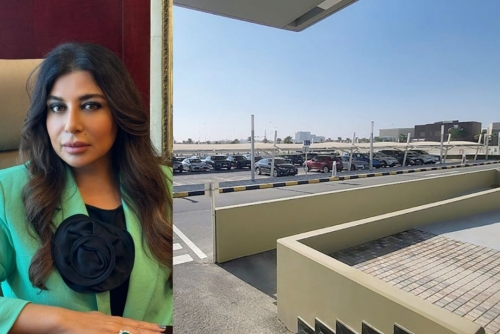Thirty-one medical professionals, including doctors, nurses, and other staff, have filed a criminal complaint against a private hospital in Bahrain and its executive director for alleged labour exploitation and non-payment of wages. The complainants had been employed at the hospital for varying periods, with salaries ranging from BD4,100 to BD200 per month. They had signed employment contracts specifying their job titles and salaries, but the hospital began delaying salary payments in February 2024, with some employees facing delays of up to two and a half months without explanation. The situation escalated when the hospital announced its closure without prior notice or warning, refusing to pay the employees their salaries for July, August, and September 2024. This prompted the employees, represented by lawyer Maha Jaber, to file a criminal complaint.
Jaber emphasized that the hospital’s failure to pay the employees’ salaries is a violation of Bahraini law and constitutes a criminal offense under the Penal Code and Labour Law. She argued that this action by the hospital amounts to forced labour without compensation, justifying legal action. The employees are demanding not only their overdue salaries but also other labour entitlements such as end-of-service benefits, annual leave pay, service certificates, and travel tickets. Jaber referenced the Penal Code, which states that those who use forced labour or withhold wages unjustly can face imprisonment and fines. Any employer who violates the provisions of the Labour Law can be fined between BD200 and BD50.
Furthermore, the hospital’s refusal to pay the employees’ salaries and entitlements after their employment ended is seen as a clear violation of both the Penal Code and Labour Law, constituting forced labour. The Daily Tribune had previously reported that the hospital had ceased most of its operations for several days, leading to suspended patient admissions and consultations across approximately 30 specialties in areas such as general surgery, obstetrics and gynecology, pediatrics, and cosmetic surgery. Doctors and nurses at the hospital expressed their hardship due to not being paid for two months, further highlighting the severity of the situation.
The legal complaint filed by the medical professionals underscores the importance of upholding labour rights and ensuring fair treatment of employees in the workplace. It brings attention to the serious issue of labour exploitation and non-payment of wages, which can have detrimental effects on the livelihoods of workers. The actions of the hospital, as alleged by the complainants, reflect a disregard for the well-being and rights of its employees, leading to legal repercussions. By seeking justice through legal channels, the employees are standing up for their rights and sending a message that such practices will not be tolerated.
In a country like Bahrain, known for its strong legal framework and commitment to upholding human rights, cases of labour exploitation and non-payment of wages should be thoroughly investigated and addressed. The filing of a criminal complaint by the medical professionals is a step towards seeking accountability from the hospital and its executive director for their alleged actions. It is a reminder that all individuals, regardless of their profession, deserve to be treated fairly and receive compensation for their work. The outcome of this case will not only impact the affected employees but also set a precedent for safeguarding the rights of workers in similar situations.
As the legal proceedings unfold, it is crucial for authorities to conduct a thorough investigation into the allegations made by the complainants and take appropriate action to ensure that justice is served. The case serves as a wake-up call for employers to adhere to labour laws and regulations, and to prioritize the well-being of their employees. It also highlights the importance of legal recourse for individuals facing labour exploitation, encouraging them to stand up against injustice and seek legal redress. Ultimately, the case represents a test of the legal system’s ability to uphold justice and protect the rights of workers in Bahrain.










